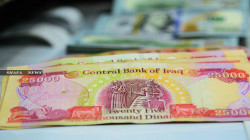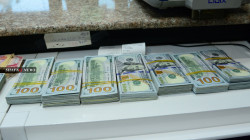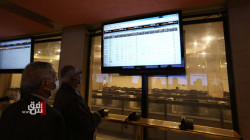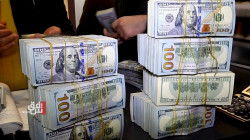CBI's forex auctions see 5% dip in sales amid surge in transfers

Shafaq News/ The Central Bank of Iraq (CBI) held four currency auctions this week, witnessing a 5% decline in average daily sales compared to the previous week, despite a marked increase in foreign transfers.
Over the course of the week, the CBI sold a total of $844,627,921, with an average daily rate of $211,156,980, which pales in comparison to the preceding week's daily average of $222,425,512.
Sunday recorded the highest sales, amassing $281,889,029, while the lowest sales transpired on Wednesday, with a total of $157,564,543.
Notably, foreign transfer sales experienced a staggering upswing, reaching $681,777,921, representing an astounding 76.11% increment when juxtaposed with the $162,850 cash sales observed during the same period.
The currency auctions purportedly facilitated the provision of funds in the form of cash and transfers, specifically designed to bolster foreign trade financing.
The CBI set the selling price for documentary credits and international settlements for electronic cards at 1,305 Iraqi dinars per US dollar. Concurrently, the selling price for transfers abroad and cash sales was established at a marginally higher rate of 1,310 dinars per dollar.
These fluctuations in the forex auction figures shed light on the dynamic and evolving economic landscape in Iraq, with the Central Bank actively maneuvering its policies to effectively manage the country's foreign exchange reserves and support the local economy.
Some critics have voiced concerns regarding the efficacy and transparency of these auctions in addressing the country's economic challenges.
Detractors argue that these auctions may be vulnerable to exploitation for money laundering and financial fraud, potentially undermining Iraq's economy and financial system. Additionally, concerns have been raised about the CBI's reliance on forex auctions for maintaining the Iraqi dinar's stability and the risk of depleting foreign reserves.
Critics also suggest that the focus on currency auctions could perpetuate dependence on oil revenues and hinder efforts to diversify the economy.





